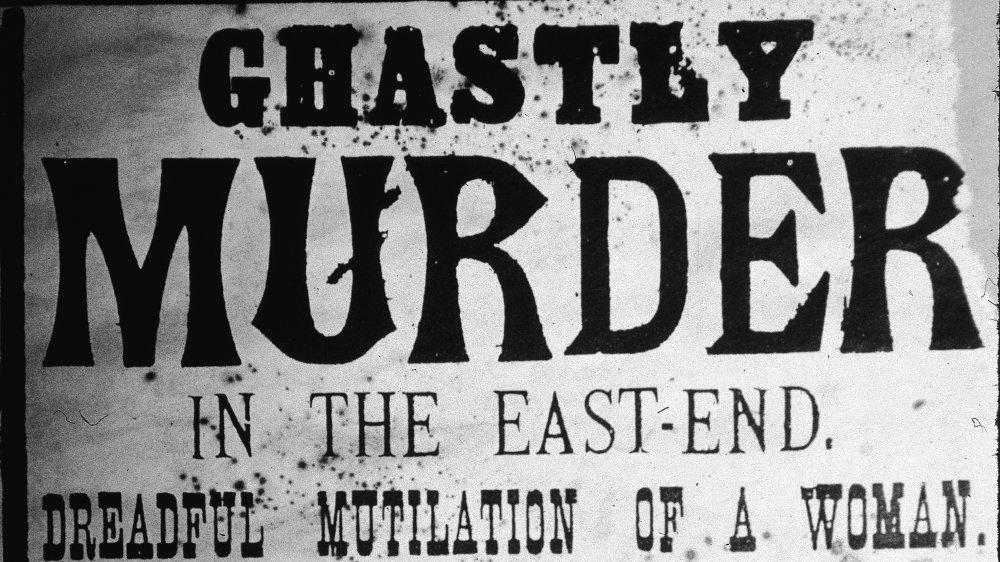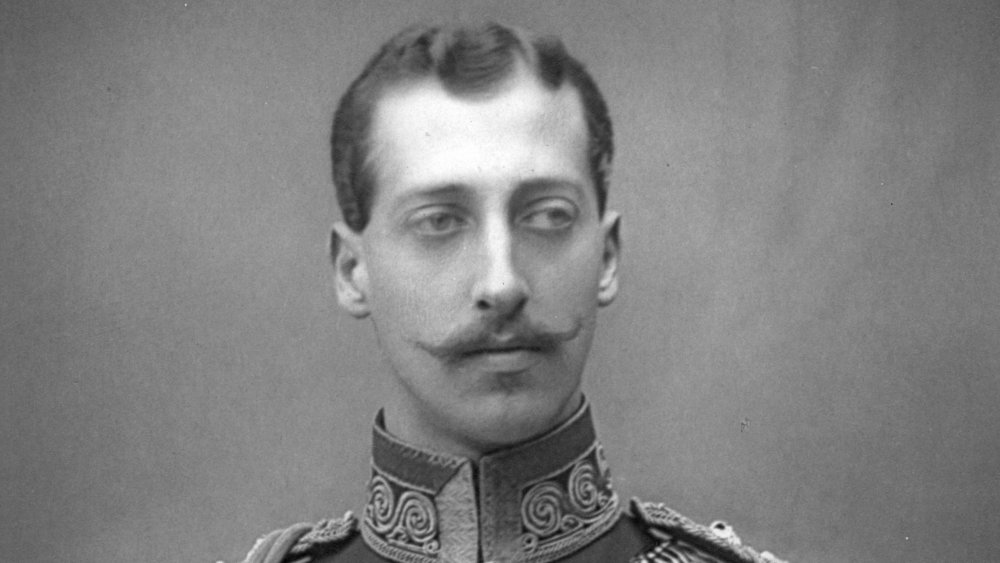The Truth About Jack The Ripper And Queen Victoria's Relationship
Families, right? You accompany your friend to their home for, say, Thanksgiving Dinner. Introductions are made. And every single time, there's going to be some older relative who will smile a smile that at first glance is a mix of devious and welcoming and offer the observation, "This family's a little crazy, but you'll get used to it!" And your heart of hearts is silently responding, If I live long enough.
As Osgood Fielding III observes at the end of Some Like It Hot, "Well, nobody's perfect." Families are made up of people, and people are complicated and flawed creatures. Some people are more complicated and flawed than others. And so are some families. That includes yours, and the one next door, and even royalty. Maybe even especially royalty. Some aspects of family get discussed, and some don't. Perhaps, sometimes, for good reason.
England's royal families have been known to engage in behavior that would raise an eyebrow or two. No doubt there's more than one skeleton in the ol' ancestral closet. And that doesn't even count speculation, like that surrounding Queen Victoria and her grandson, Prince Albert Victor (known to those who loved him as "Eddy," also great uncle to the present Queen, Elizabeth II), and a proposed candidate for true identity of Jack the Ripper.
Did "Eddy" commit the murders?
The Ripper was a name given to an unknown individual murdering prostitutes in the Whitechapel slums of London in 1888. At least five women died, their throats cut, their abdomens mutilated. There have been theories a-plenty over the years as to whodunnit — hardly a publishing cycle goes by without at least one book advancing a new and rock-solid theory that provides a solution to the mystery. But were a grandson's misdeeds swept under the rug of Buckingham Palace?
As History reports, documentary evidence shows Eddy was nowhere near Whitechapel during the killings. All That's Interesting relays that Stephen Knight's Jack the Ripper: The Final Solution (and we've heard that before) published the theory in the 1960s. It was trotted out again in 1970 by Thomas Stowell, a British physician. Dr. Stowell theorized that Eddy, crazed by the effects of syphilis, committed the murders. The article was published in The Criminologist just two weeks before Dr. Stowell's death, as The New York Times wrote in his obituary. Dr. Stowell backed away from the specific accusation, writing a letter published in The Times of London denying that he had suggested the Ripper was of royal blood.
Additionally intriguing: he supposedly left behind a folder labeled "Jack the Ripper." His son, Dr. T. Eldon Stowell, said the folder held "nothing of importance." Whatever evidence that dossier might have held, it's lost forever; Dr. Stowell the Younger burned it.
Family, right?

